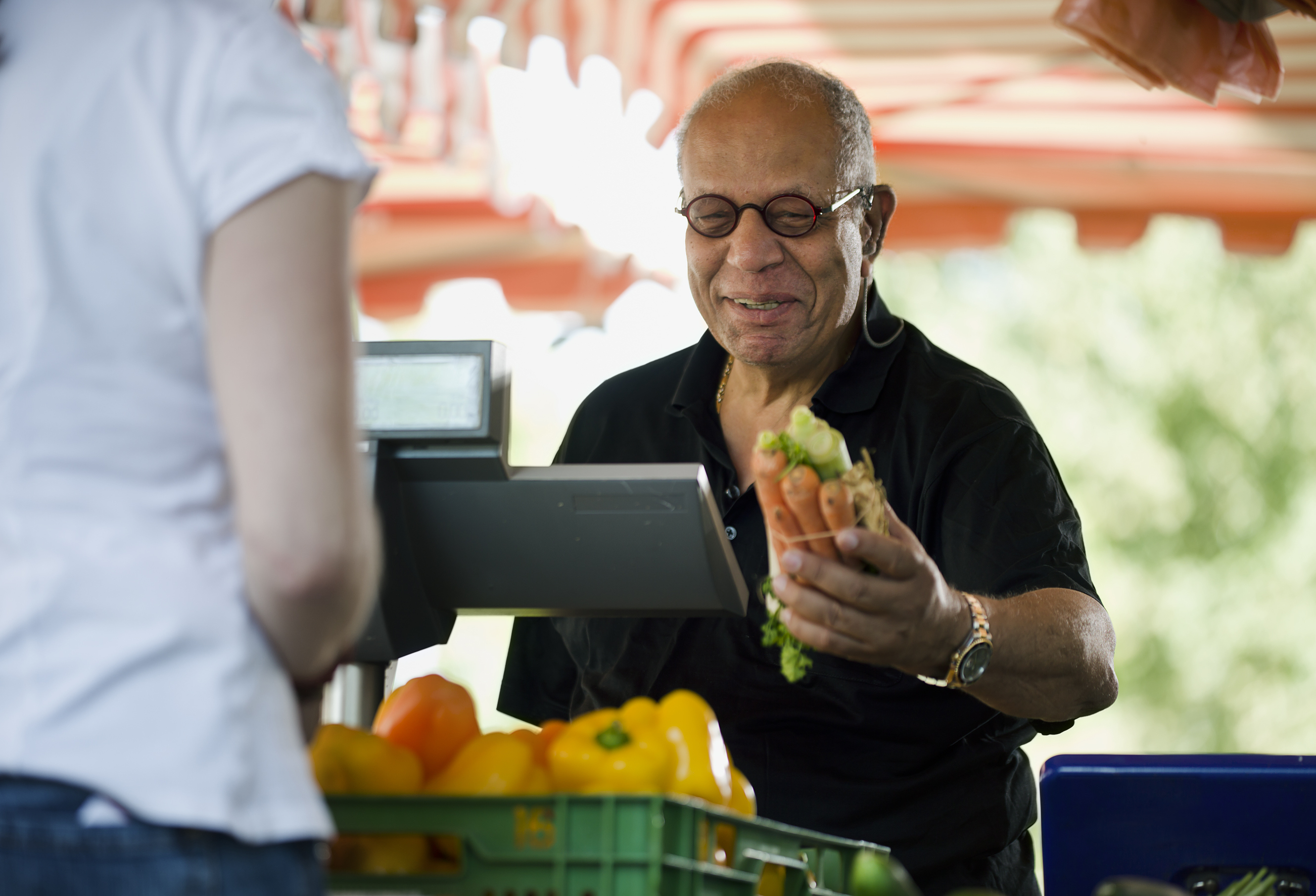Farmers markets and community gardens are summer spots for older adults to cultivate healthy eating habits. Anyone who has ever bitten into a slice of homegrown tomato knows that garden fresh and local produce can taste far better than store-bought or commercially grown fruits, vegetables, and herbs.
Access to fresh fruits and vegetables is vital to improving nutrition in underserved communities. Lack of access to healthy foods increases the risk of developing obesity or high blood pressure, but nutritious food helps manage these conditions. Farmers markets and community gardens are excellent places to obtain affordable, tasty, and nutritious fruits and vegetables.
Fresh Food Saves Money, Promotes Healthy Eating
Smart shoppers will save money at farmers markets. Many items are organically grown without pesticides or weed killers. Because the foods are locally grown and not shipped from distant farms, they cost less. Fresh fruits and vegetables do not spoil as quickly as grocery store produce. Buyers waste less money and food when their produce stays fresh longer.
Both farmers markets and vacant-lot or backyard gardens help residents of food deserts, where only packaged goods or fast foods are readily available. They make fresh produce more accessible to those without a nearby grocery store that sells fresh produce.
When visiting a farmers market, walk around the entire market before making any purchases to see the variety of items available. Prices may vary between stands, but some may be willing to accept a lower price if asked. Many farmers market vendors accept Supplemental Nutrition Assistance Program (SNAP) or Electronic Benefits Transfer (EBT) cards, so individuals on limited incomes can still afford fresh produce from local suppliers.
Homemade meals are also more economical than prepackaged alternatives or restaurant meals. Ingredients to cook a meal cost less than premade or restaurant meals
For individuals with heart disease, high blood pressure, high cholesterol or diabetes, homemade meals are one crucial way to manage their health. Home cooks control the amounts of sugar, fat and salt in their food, making homemade meals healthier.
Farmers Markets Foster a Sense of Community Wellness
Farmers market shoppers can speak directly with the farmers who grew their food. They can ask about the varieties of products they sell, how to keep them fresh and the best way to prepare special items.
In neighborhood co-op gardens, growing food is a community activity and a rewarding hobby for older adults. Members can share their extra produce and exchange tips for growing and making the best use of their garden yields. Meeting to discuss homegrown foods encourages a sense of community among friends and neighbors.
Precise meal planning may be more challenging when attending a farmers market. Grocery stores have a more predictable product selection. However, farmers markets offer produce choices consumers cannot readily find in the grocery store. A tender lettuce or ripe fruit variety can excite buyers to try something new.
Most farmers markets are only open a few hours on certain days. For those with limited transportation, this is less convenient than going to a grocery store with more flexible hours of operation. However, if farmers markets are centrally located, shoppers can carpool or arrange transportation ahead of time
Farmers markets and neighborhood co-op gardens are cost-effective, provide top-quality fresh produce, support local food growers, promote healthy eating, reduce health disparities, and foster community connections. A stop at your local farmers market may become a new favorite summer activity.
Y0149_0013216_C




